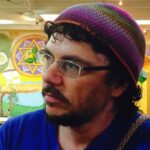“Therein lies a basic lesson of Shmita: You can’t deprive other people or the land of their freedom in order to preserve your own.”
The Shabbat of Chanukah is here. When we left Joseph last week, he was in the dungeon. This week, Joseph gets lifted up from the dungeon and becomes Pharaoh’s right-hand man, second to Pharaoh “in throne only” (Gen. 41:40). All this because Joseph listens to Pharaoh’s dreams, predicts seven years of abundance followed by seven years of famine, and (slyly?) advises Pharaoh to seek out a wise person to carry out a plan.
The outlines of the plan are common sense: store up grain each year during the years of abundance, and redistribute that grain during the years of famine (Gen. 41:34-36). Next week, however, we will learn the specifics. After there was no bread left in Egypt, the Egyptian peasants used up all their money to buy grain from what Joseph had stored up. When that was gone, they gave up their animals, and finally, after they had lost their money and their cattle, they gave up themselves and their land, becoming slaves to Pharaoh (Gen. 47:13-23).
The peasants had actually grown all that grain. Why couldn’t Joseph distribute the grain for free to them, so that he could have saved not only life, but also dignity and hope?
Joseph’s final policy was also the final blow against dignity. He removed Egypt’s peasant families from the lands their ancestors had farmed, transferring them from “one extreme of Egypt’s border to its (other) extreme” (Gen 47:21). Their connection to the land was broken; now everyone worked on land that they had only ever known only as belonging to Pharaoh.
Rabbi Arthur Waskow pointed out in Godwrestling that Joseph did the reverse of what Shmita teaches. Joseph understood Pharaoh’s dreams as Egypt’s fate: “There will be seven years of abundance followed by seven years of famine.”
But if we look at Pharaoh’s dreams as prophecy rather than fate, their message changes: “If you sow without taking a break, you will have seven years of abundance, then seven years of famine.” The implicit message would be, don’t sow and harvest seven years in a row. Instead, let the land lie fallow in the seventh year.
What Joseph did instead was Shmita’s antithesis. In the Shmita system, at the beginning of the first cycle of seven Shmita years, the land was distributed equally among all the Israelite families. Maybe some were better farmers than others; maybe some ended up in debt and had to sell their land. But no one could ever give up their land forever (lits’mitut – Lev. 25:23). After the seventh Shmita, in the fiftieth or Jubilee year, even if you had lost your land, your family got it back.
Not only that, there was no such thing as permanent debt or slavery. Instead, after the Shmita year, debts were canceled (Deut. 15:1-2). If debt nevertheless forced any Israelite to sell themselves into slavery or service, they had a right to go free after seven years, with full compensation (Deut. 15:12-15).
Shmita brings freedom, for the people and for the land. But Joseph’s plan led to vassalage, to cultural genocide, to the equivalent of a fascist state, where the next Pharaoh could cast the Israelites into crushing slavery, and enlist his people (that is, his other slaves) to kill the Israelites’ baby boys.
Therein lies a basic lesson of Shmita: You can’t deprive other people or the land of their freedom in order to preserve your own. Joseph thought he could, enslaving the rest of Egypt while he kept his family well-fed in Goshen. The next Pharaoh, the one who didn’t know Joseph, also thought he could. His punishment, or rather, his consequence, was that he lost his own freedom when God hardened his heart.
It’s a lesson we all need to learn – and soon. Because we still have the freedom to avert the course of climate change by choosing to live differently – if we give freedom to the land and support freedom for all peoples. Soon enough, we will no longer have that choice.
To read Arthur Waskow’s full interpretation of the Joseph story, go to https://theshalomcenter.org/content/dark-joseph-his-brothers.
 Rabbi David Mevorach Seidenberg is the creator of neohasid.org, the author of Kabbalah and Ecology: God’s Image in the More-Than-Human World, and a composer and dancer. David started learning about Shmita nearly forty years ago and has been teaching about Shmita for close to thirty years.
Rabbi David Mevorach Seidenberg is the creator of neohasid.org, the author of Kabbalah and Ecology: God’s Image in the More-Than-Human World, and a composer and dancer. David started learning about Shmita nearly forty years ago and has been teaching about Shmita for close to thirty years.